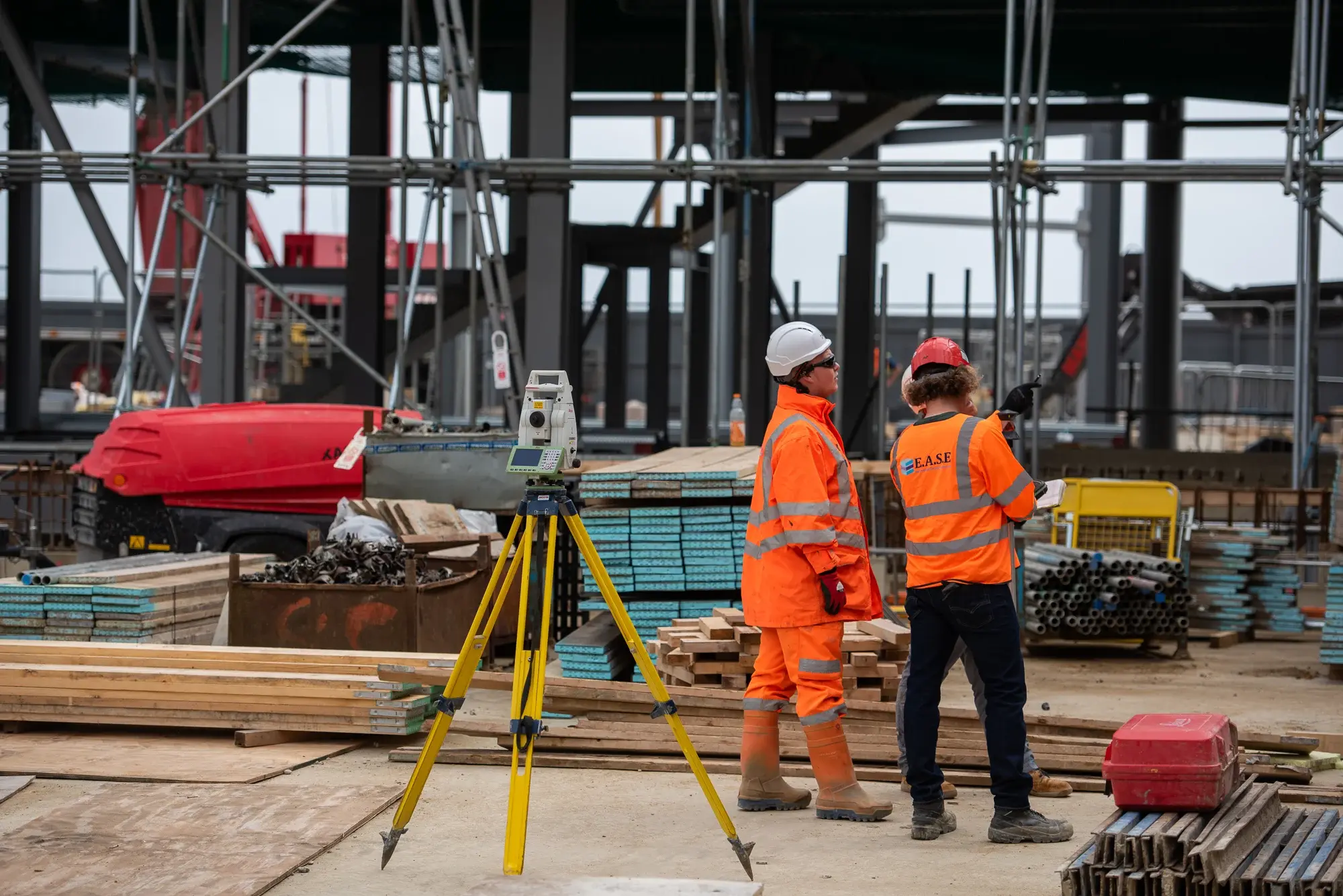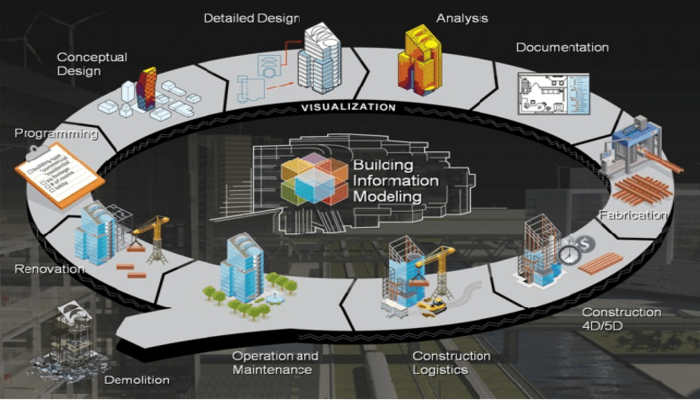
“You can use an eraser on the drafting table or a sledgehammer on the construction site,” said the renowned architect Frank Lloyd Wright.
In line with his thinking, the importance of construction work is crucial in bringing visions to life. From understanding the suitability of materials and getting the proportions right to ensuring structural stability and keeping the work on track, a lot goes into taking a project from design to execution. This is where professionals like civil engineers, structural engineers, construction managers, and construction inspectors step in, making the job more efficient through their knowledge and skills.
Understanding the Role of a Construction Inspector

A construction inspector is a professional responsible for monitoring the implementation of a building construction or infrastructure project. Construction inspector duties and responsibilities demand them to be forward-thinking, agile, and empathetic. Below is a detailed breakdown of what encompasses a construction inspector job description:
- Ensure compliance with building codes, safety regulations, and project specifications.
- Verify that construction aligns with design documents and approved plans.
- Track work stages, ensuring timeliness and quality standards are met.
- Assess structural integrity, materials, and workmanship at various construction phases.
- Prepare detailed reports on inspections, noting any deviations or required corrections.
- Ensure the site meets occupational health and safety regulations.
- Liaise with contractors, engineers, and project managers to address issues and provide recommendations.
- Sign off on completed work when it meets all required standards and regulations.
Essential Skills & Qualifications for Construction Inspector Jobs

Working in a construction inspector job requires expertise in both theoretical and practical knowledge of building materials, construction techniques, and people management. Below are the key qualifications needed for a construction inspector career.
1. Educational Background
While specific construction inspector job requirements can vary based on location and the complexity of projects, the following educational qualifications are commonly sought after:
- High School Diploma: The basic requirement to pursue a construction inspector career, providing foundational knowledge in maths, science, and technical subjects.
- Bachelor’s Degree in Construction Management, Civil Engineering, Architecture, or a Related Field: A 4–5 year programme that offers in-depth knowledge on the subject.
- Internships: On-the-job training programmes that combine practical experience with classroom instruction, often leading to certification or licensure.
- Continuing Education: Ongoing courses or workshops to stay updated on the latest building codes, technology, and industry best practices.
2. Technical Skills
- Understanding and applying local, state, and national building codes, safety regulations, and environmental laws.
- Ability to read, interpret, and compare architectural, engineering, and construction plans to the actual work on-site.
- Familiarity with various construction materials such as concrete, steel, and wood, including their proper use and installation.
- In-depth knowledge of construction techniques, including framing, pouring concrete, roofing, plumbing, electrical work, and finishing.
- Expertise in construction inspector software and processes like BIM, robotics, and prefabrication.
- Proficiency in using tools such as measuring tapes, levels, moisture metres, and other specialised equipment to assess construction quality.
- Ability to assess the structural integrity of buildings, ensuring that all elements meet design specifications and safety standards.

- Understanding of safety standards like India's Occupational Safety, Health and Working Conditions Code for hazardous material handling, and environmental impact assessments.
- Skill in maintaining accurate records, including inspection reports, compliance documentation, and progress tracking.
- Competence in using construction management software and digital reporting tools like Procore, Primavera, Revit, and Asana for documenting and analysing inspection data.
- Knowledge of HVAC, plumbing, and electrical systems to ensure these components are installed and functioning correctly according to building codes.
3. Soft Skills
- A sharp eye for identifying the smallest discrepancies or issues in construction work.
- The ability to convey findings, recommendations, and requirements to contractors, engineers, and project managers.
- Strong analytical skills to assess situations, identify potential problems, and suggest practical solutions.
- Efficiently managing time to conduct thorough inspections while meeting deadlines across multiple projects.
- Maintaining integrity and impartiality in evaluations, ensuring that all work complies with standards and regulations without bias.
- The ability to handle unexpected changes or challenges on-site, such as weather delays or design modifications.
- The capacity to address and resolve disagreements or issues that may arise between stakeholders in a constructive manner.
- Keeping track of inspection schedules, documentation, and reporting to ensure nothing is overlooked.
- Working effectively with various professionals, including architects, engineers, and construction workers, to achieve project goals.
- The ability to remain calm and focused under pressure, especially when dealing with tight deadlines or challenging site conditions.
Career Path & Progression for Construction Inspector

Construction inspector duties and responsibilities vary as individuals advance in their careers. It can also vary based on the category of work. For instance, the job description of a city construction inspector (dealing with urban-level construction) would differ from that of a commercial construction inspector (dealing with workspace construction). So, let’s look at the generic job hierarchy of these professionals, along with insights into construction inspector salaries.
1. Entry-level Roles
At the entry level, individuals typically start as Junior Construction Inspectors or Assistant Construction Inspectors. These roles involve working under the supervision of experienced inspectors, learning the basics of construction inspection, and gaining hands-on experience on-site.
Key Responsibilities:
- Assisting in site inspections and documentation.
- Learning to read and interpret blueprints and construction plans.
- Understanding and applying basic building codes and standards.
- Monitoring construction activities to ensure compliance with safety regulations.
Salary Range:
Entry-level construction inspectors in India can expect to earn between INR 2.5 to 4 lakh per annum.
2. Mid-level Roles
After gaining experience and developing technical skills, professionals can advance to Construction Inspector or Site Inspector roles. At this stage, inspectors are responsible for independently conducting site inspections and ensuring that projects adhere to all relevant codes and standards.
Key Responsibilities:
- Conducting detailed inspections of construction sites, materials, and workmanship.
- Ensuring compliance with building codes, safety standards, and project specifications.
- Preparing comprehensive inspection reports and documenting any issues or discrepancies.
- Coordinating with contractors, engineers, and project managers to resolve problems.
Salary Range:
Mid-level construction inspectors in India typically earn between INR 4 to 7 lakh per annum.
3. Senior-level Roles
With several years of experience, construction inspectors can progress to Senior Construction Inspector or Lead Inspector positions. These roles involve overseeing multiple inspection teams, managing larger projects, and taking on more responsibility for ensuring project quality and safety.
Key Responsibilities:
- Leading inspection teams and mentoring junior inspectors.
- Overseeing inspections on large-scale construction projects, including high-rise buildings, infrastructure, and industrial facilities.
- Ensuring that all construction activities meet high standards of safety, quality, and compliance.
- Collaborating with senior management to address complex issues and make critical decisions.
Salary Range:
Senior construction inspectors can earn between INR 7 to 12 lakh per annum.
4. Advanced Roles

At the advanced stage of their career, construction inspectors may move into roles such as Chief Construction Inspector, Quality Control Manager, or Construction Manager. These positions involve strategic oversight of multiple projects, implementing quality control processes, and ensuring overall compliance across the organisation.
Key Responsibilities:
- Developing and implementing quality control procedures across multiple projects.
- Managing inspection teams and coordinating with various stakeholders to ensure project success.
- Ensuring that all projects comply with the latest building codes, safety regulations, and environmental standards.
- Playing a key role in decision-making processes, including project planning and risk management.
Salary Range:
Advanced-level professionals in this field can earn between INR 12 to 20 lakh per annum, or more, depending on the scope of their responsibilities and the scale of the projects they manage.
Top 4 Certifications & Courses for Construction Inspectors
If you want to secure construction inspector jobs that are both creatively fulfilling and well-paying, you must invest in upskilling. While you can become a construction inspector by learning hands-on on-site, gaining knowledge through courses provides a comprehensive understanding of the subject matter. It allows you to master all the key aspects listed in a construction inspector job description and position yourself as a leader in the industry.
Here is a list of the best construction inspector courses to consider:
1. BIM Professional Course by Novatr
The BIM Professional Course by Novatr is designed to provide construction inspectors with a deep understanding of BIM processes. This course is ideal for those looking to integrate advanced digital tools into their inspection practices, allowing for more accurate and efficient project management.
Program Curriculum:
- Understanding the fundamentals of BIM, its benefits, and its role in construction projects.
- Hands-on training with popular BIM software like Revit, Navisworks, and Rhino.
- Strategies for implementing BIM in construction projects, including coordination, collaboration, and communication.
- Exploring 4D (time) and 5D (cost) BIM, and how these can be used to enhance project planning and inspection.
- Applying BIM methodologies to the inspection process, improving accuracy and documentation.
2. Construction: Special Inspections for Construction Managers by Udemy
This course focuses on the special inspections required for construction projects, a critical area of expertise for construction inspectors. It’s designed for both new and experienced inspectors who want to deepen their understanding of specialised inspections, particularly in high-risk areas like structural integrity and fire safety.
Program Curriculum:
- Overview of special inspections, including their purpose and legal requirements.
- Detailed examination of different types of special inspections, such as structural steel, concrete, and fireproofing.
- Understanding the role of the construction inspector in special inspections and how to work effectively with project stakeholders.
- Step-by-step guidance on how to conduct various special inspections, including documentation and reporting.
- Real-world examples and best software practices for conducting special inspections efficiently and accurately.

3. Construction Inspector Training Program by VRX Institute
This comprehensive program equips aspiring and current construction inspectors with the essential skills needed to perform their duties effectively. The course covers a wide range of topics, from fundamental inspection techniques to advanced quality control methods.
Program Curriculum:
- In-depth training on various inspection techniques for different construction elements such as foundations, framing, and finishes.
- Comprehensive overview of local, national, and international building codes, including how to apply them in the field.
- Techniques for ensuring that construction projects meet quality standards, including materials testing and workmanship evaluation.
- Understanding the legal and ethical responsibilities of a construction inspector, including dealing with non-compliance issues.
4. Fundamentals of Construction Inspection by University of Minnesota
The University of Minnesota offers the Fundamentals of Construction Inspection course, designed for those seeking to build a strong foundation in the principles of construction inspection. This program is beneficial for those new to the field or those looking to solidify their understanding of the basics.
Program Curriculum:
- Introduction to the core principles of construction inspection, including safety, quality, and compliance.
- Detailed exploration of common construction materials and methods, and how they are inspected.
- Training on how to document inspections properly, including report writing and maintaining accurate records.
- Techniques for effective communication with contractors, project managers, and other stakeholders.
- Practical, hands-on training in field inspection techniques, including site visits and real-world scenarios.
In Conclusion
Given the versatile nature of their work, construction inspector jobs can be highly rewarding. They can open the gateway to international work opportunities and collaborations. To make the most of this niche career segment, professionals must invest in continually upskilling themselves. This will not only help them stay ahead of the curve but also allow them to bring their expertise to their jobs and make meaningful contributions to their projects.
If you want to secure construction inspector jobs, we suggest you explore the BIM Professional Course by Novatr. It is a one-of-a-kind program that offers knowledge about 10+ BIM software and their workflows. This enables participants to have an in-depth understanding of BIM tools and software in the context of construction management. Through this cohort-based program, individuals get the opportunity to learn from industry experts and their project case studies. Additionally, Novatr provides placement assistance to learners, empowering them to carve a lucrative construction inspector career for themselves.
Explore the course today!
Visit our Resources page to learn about the developments in the built environment.
Was this content helpful to you











